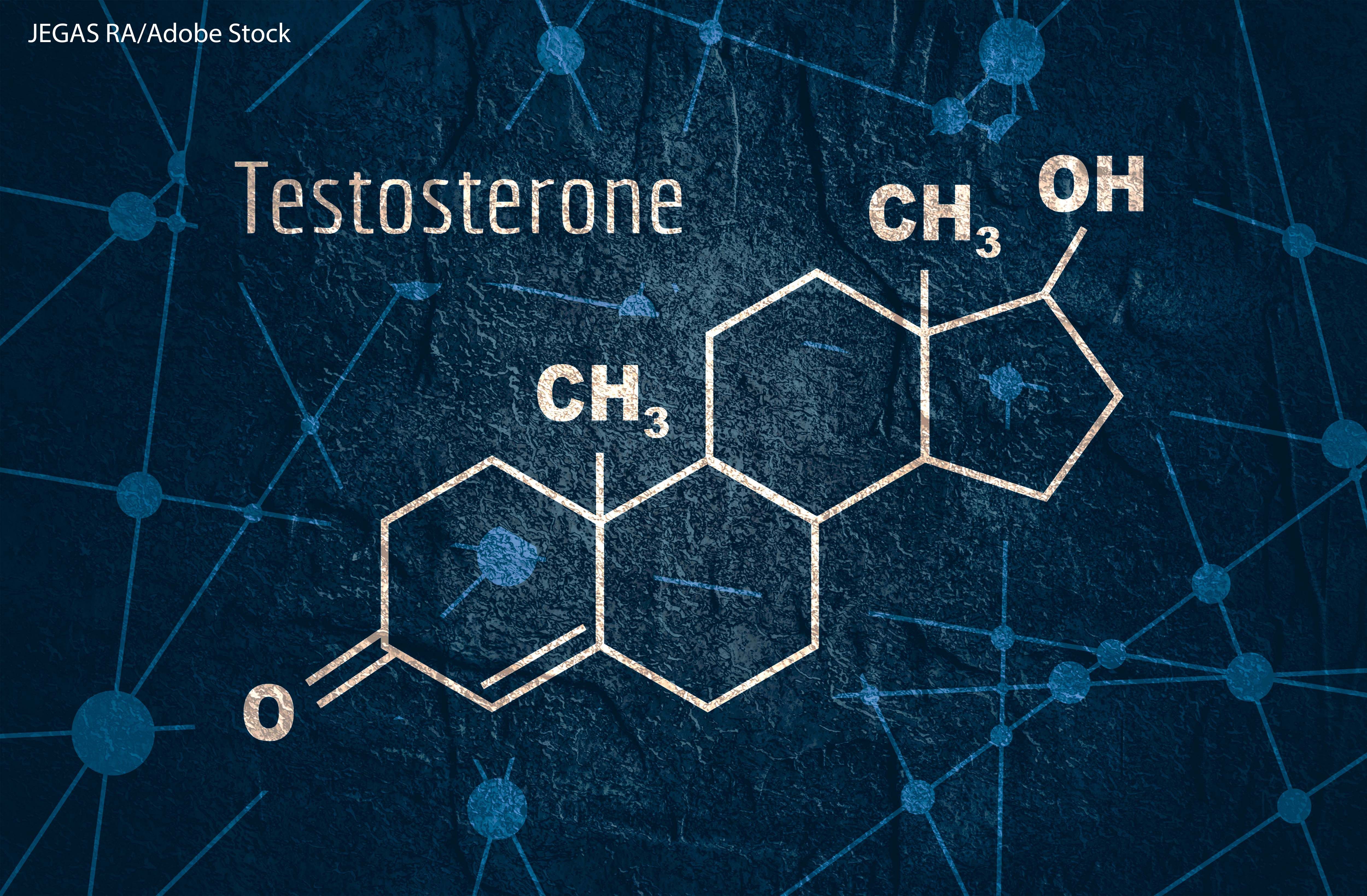
Prostate Cancer
Latest News

Latest Videos

CME Content
More News

The appearance of circulating tumor DNA and androgen receptor aberrations yielded lower overall survival rates for patients with metastatic castration-sensitive prostate cancer during the phase 3 TITAN trial, according to Agarwal, MD.

PSMA-targeting PET ligand 18F-rhPSMA-7.3 yielded high detection rates for patients with recurrent prostate cancer regardless of factors such as PSA levels, PSA doubling time, or Gleason scores, according to Benjamin H. Lowenritt, MD, FACS.

Future focuses following the phase 3 SPOTLIGHT trial will include identifying sites of recurrence and different intensity levels for 18F-rhPSMA-7.3 in suspected recurrent prostate cancer, according to Benjamin H. Lowenritt, MD, FACS.

The goal of the analysis of the phase 3 SPOTLIGHT trial was to evaluate how clinical factors impact 18F-rhPSMA-7.3 detection rates in a population of patients with suspected recurrent prostate cancer, according to Benjamin H. Lowenritt, MD, FACS.

According to findings from a biomarker analysis of the phase 2 TheraP trial, mean standardized uptake value of PSMA-PET predicted favorable responses to 177Lu-PSMA-617 compared with cabazitaxel in patients with metastatic castration-resistant prostate cancer.

Novel PSMA-targeting PET ligand 18F-rhPSMA-7.3 adds to the recurrent prostate cancer armamentarium, according to Benjamin H. Lowentritt, MD, FACS.

An abbreviated new drug application was granted approval by the FDA for leuprolide acetate injection for patients with advanced prostate cancer.

Quality of life data from the phase 3 ARASENS study highlighted how early treatment intensification with darolutamide plus standard androgen deprivation therapy and docetaxel improved patient-relevant end points compared with placebo in the management of metastatic hormone-sensitive prostate cancer.

At ASTRO 2022, Phuoc Tho Tran, MD, spoke about the potential benefit of combining salvage radiation therapy and enzalutamide vs placebo in patients with high-risk prostate-specific antigen–recurrent prostate cancer after radical prostatectomy.
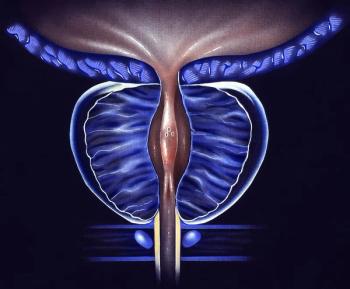
The addition of metastasis-directed therapy to intermittent hormone therapy appeared to improve survival in patients with oligometastatic prostate cancer, according to early data from the phase 2 EXTEND trial.

Patients with prostate cancer who experienced an increase in prostate-specific antigen level after radical prostatectomy appeared to benefit from a short course of androgen deprivation therapy after post-operative immediate salvage radiotherapy.
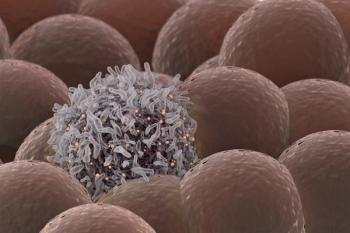
Data from the phase 3 SPOTLIGHT trial indicated that 18F-rhPSMA-7.3 PET yielded a positive detection rate in patients with recurrent prostate cancer, and increased along with prostate-specific antigen level.

Based on findings from the phase 3 CABASTY trial, a fixed 16 mg/m2 dose of cabazitaxel every 2 weeks vs 25 mg/m2 every 3 weeks reduced neutropenic complications in elderly patients with mCRPC.

According to findings from the phase 3 PACE-B trial, genitourinary and gastrointestinal toxicities were similar among patients with prostate cancer receiving conventionally fractioned or moderately hypofractionated radiotherapy and stereotactic body radiotherapy.

A meta-analysis found Black men who undergo radiotherapy for localized prostate cancer have better outcomes in terms of biochemical recurrence, distant metastases, and prostate cancer-specific mortality than White men despite presenting with more aggressive disease.

The phase 3 TALAPRO-2 study met the primary end point of radiographic progression-free survival in patients with metastatic castration-resistant prostate cancer with or without homologous recombination repair gene mutations following treatment with a combination of talazoparib and enzalutamide.
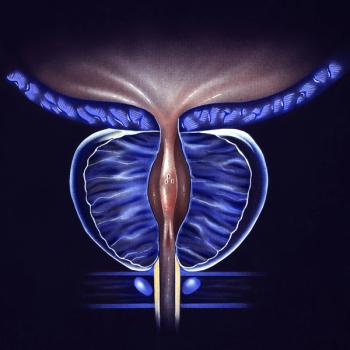
Results from the phase 3 TRITON3 trial demonstrated that radiographic progression-free survival was significantly improved when patients with metastatic castration-resistant prostate cancer were treated with rucaparib monotherapy vs physician’s choice.

A recent analysis of data from the phase 3 PEACE-1 study reveals a correlation between 8-month prostate-specific antigen levels and survival outcomes in patients with metastatic castration-sensitive prostate cancer who are treated with systemic therapy regimens that include androgen deprivation therapy.

Results from the phase 3 KEYLYNK-010 study showed that treatment with pembrolizumab and olaparib did not result in a statistically significant improvement in survival despite yielding higher responses compared with novel hormonal agents in patients with previously treated prostate cancer.

A new drug application for 18F-rhPSMA-7.3 was accepted by the FDA to help with diagnostic imaging in prostate cancer.
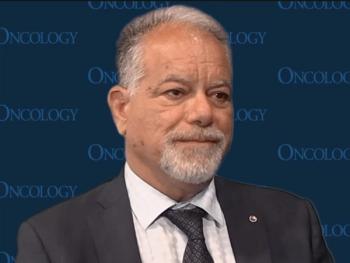
Abiraterone and olaparib continued to demonstrate a positive trend in overall survival (OS) in patients with metastatic castration-resistant prostate cancer, according to Fred Saad, MD, FRCS, though he stated that longer follow-up is needed to confirm the benefit.

Expert oncologists review key studies in the metastatic castration-resistant prostate cancer treatment landscape and discuss how evidence can be applied to clinical practice to improve patient outcomes.

At 2022 ASCO, Tanya Dorff, MD, reviewed the use of CAR T cells in the treatment of prostate cancer.

Findings from the phase 3 PRESTO trial indicated that patients with high-risk biochemically recurrent prostate cancer may derive benefit from treatment with androgen deprivation therapy intensification and apalutamide.

First results from the RADICALS-HD trial demonstrated improved metastasis-free survival with 2 years of androgen-deprivation therapy (ADT) plus radiotherapy in men with prostate cancer.



